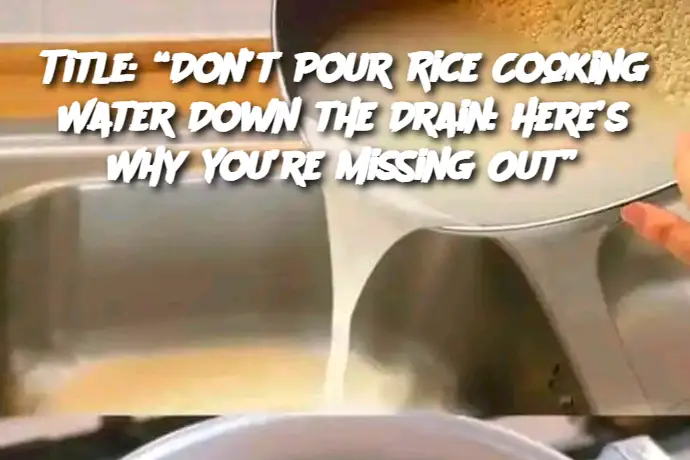Why it Works: The same starch in rice water can help loosen grime.
How to Use: If you have a small batch of dishes with only light residue, soak them briefly in rice water before washing as usual.
6. Prevent Kitchen Waste
Zero-Waste Mindset
Why it Matters: Saving rice water means you’re making the most of every part of your cooking process. By repurposing what might otherwise be discarded, you reduce waste and get extra value from your groceries.
Energy and Money Savings
Why it Matters: Each time you reuse rice water (for cooking, cleaning, or self-care), you’re potentially saving money on commercial products or extra ingredients.
FAQs
Q1: Does the type of rice matter for making rice water?
A: Any variety—brown, white, basmati, jasmine—works. The nutritional content may vary slightly, but you can still harness similar benefits.
Q2: How do I store leftover rice water?
A: Let it cool and store in a clean, airtight container in the fridge for up to 3–4 days. For best results, try using it within 1–2 days.
Q3: Should I add anything else to the rice water for hair or skin treatments?
A: You can experiment with ingredients like a few drops of essential oil (lavender or rosemary) for a pleasant scent, or add aloe vera juice for additional soothing properties.
Q4: Can rice water replace commercial fertilizers entirely?
A: Rice water offers mild nutrients but generally isn’t potent enough to replace comprehensive fertilizers, especially for nutrient-heavy plants. Use it as a supplement alongside normal plant care.
Q5: Does rice water go bad?
A: Yes, it can sour or ferment after a few days, especially if not refrigerated. If it develops an off smell or appearance, discard it.
Conclusion
Instead of pouring that starchy liquid down the drain, consider all the ways you can use rice cooking water to enhance your daily life—from beauty routines and cooking endeavors to eco-friendly cleaning and gardening. By making this small shift in your routine, you’re not only embracing a more sustainable lifestyle but also unlocking the hidden value in a simple, often-overlooked kitchen byproduct.
